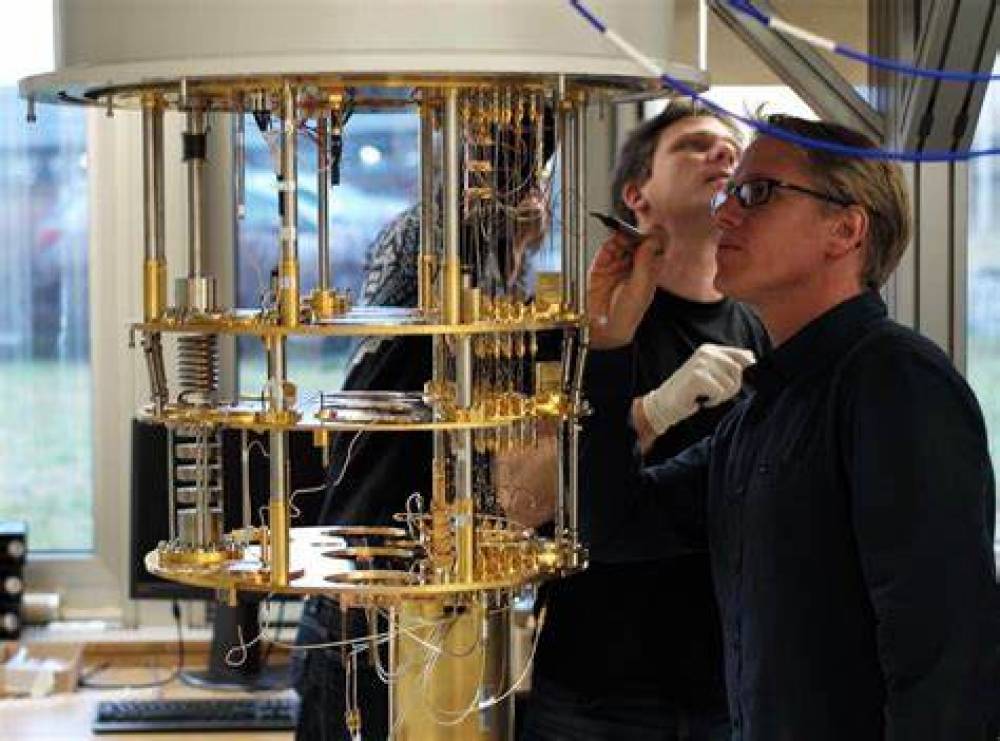
Quantum Computers: Everything You Need To Know
Quantum Computers: Everything You Need To Know
Quantum computers are devices that store data and perform calculations based on the probability of an object's state before it is measured. This can be extremely advantageous in certain situations, where they can significantly outperform even the most powerful supercomputers.
Quantum computers are more efficient at processing large and complex datasets than classical computers. They employ quantum mechanics fundamentals to accelerate the process of solving complex calculations. Frequently, these computations involve an almost infinite number of variables, and their potential applications range from genomics to finance.
Computers in the traditional sense, which include smartphones and laptops, perform logical operations based on the precise position of a physical state. They store data in binary 'bits' that can be either 0s or 1s. In quantum computing, operations instead make use of an object's quantum state to generate the fundamental unit of memory known as a quantum bit or qubit. Qubits are created by manipulating physical systems such as an electron's spin or the orientation of a photon. These systems can exist in an infinite number of configurations simultaneously, a property known as quantum superposition. Additionally, qubits can be inextricably linked via a phenomenon known as quantum entanglement. As a result, a series of qubits can simultaneously represent multiple entities. These are the undefined properties of an object before they are detected, such as an electron's spin or a photon's polarization.
Rather than having a distinct position, unmeasured quantum states exist in a mixed'superposition' that can be entangled with those of other objects due to their mathematically related final outcomes. The intricate mathematics underlying these unsettled states of entangled'spinning coins' can be used in conjunction with special algorithms to solve problems that would take a classical computer an eternity to solve.
History of Quantum Computers
Richard Feynman, an American physicist and Nobel laureate, first mentioned quantum computers in 1959. He stated that as electronic components approach microscopic scales, quantum mechanical effects become apparent that could be exploited in the design of more powerful computers.
The theory of quantum computers advanced significantly beyond Feynman's early speculations during the 1980s and 1990s. David Deutsch of the University of Oxford first described how to construct quantum logic gates for a universal quantum computer in 1985. In 1994, AT&T's Peter Shor developed an algorithm for factoring numbers using a quantum computer with as few as six qubits. Later that year, in 1998, Isaac Chuang of the Los Alamos National Laboratory, Neil Gershenfeld of the Massachusetts Institute of Technology (MIT), and Mark Kubince of the University of California developed the first quantum computer with two qubits capable of loading data and producing a solution.
Physicist David Wineland and his colleagues at the US National Institute of Standards and Technology (NIST) recently announced the creation of a four-qubit quantum computer by entangling four ionized beryllium atoms using an electromagnetic trap. Today, quantum computing has the potential to disrupt entire industries, from telecommunications to cybersecurity, advanced manufacturing, finance, and medicine, among others.
Types of Quantum Computers
Quantum computing can be classified into three broad categories. Each type is distinguished by the amount of processing power (qubits) required, the number of potential applications, and the time required to achieve commercial viability.
Quantum Annealing
Quantum annealing is the most efficient way to solve optimization problems. Researchers are attempting to find the optimal and most efficient configuration possible from a large number of possible combinations of variables.
Volkswagen recently conducted a quantum experiment to optimize traffic flow in Beijing, China, which is notoriously congested. Google and D-Wave Systems collaborated on the experiment. D-Wave, a Canadian company, invented the quantum annealer. However, it is difficult to determine whether it possesses true 'quantumness' thus far. By selecting the optimal path for each vehicle, the algorithm could successfully reduce traffic.
Universal Quantum Computing
Universal quantum computers are the most powerful and widely applicable computers, but they are also the most difficult to build. Surprisingly, a universal quantum computer would almost certainly require more than 100,000 qubits, and some estimates put the figure as high as 1 million. However, to our disappointment, the maximum number of qubits we can access at the moment is only 128. The fundamental premise of the universal quantum computer is that it can be directed at any massively complex computation and produce an immediate solution. This includes solving the annealing equations mentioned previously, as well as simulating quantum phenomena.
Quantum Simulations
Quantum simulations are used to investigate particular problems in quantum physics that are beyond the capabilities of classical systems. Simulating complex quantum phenomena may be one of quantum computing's most important applications. A particularly promising area for simulation is the modeling of the effect of a chemical stimulus on a large number of subatomic particles, a process known as quantum chemistry.

